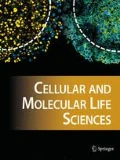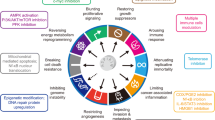Abstract.
Aspirin exerts anti-thrombotic action by acetylating and inactivating cyclooxygenase-1, preventing the production of thromboxane A 2 in platelets. Through this inhibition of platelet function, aspirin is considered as a preventative of ischemic diseases such as coronary and cerebral infarction. However, many studies have revealed that aspirin has other beneficial actions in addition to its anti-platelet activity. For example, aspirin may confer some benefit against colorectal cancer. Here, we discuss the involvement of inflammation in atherosclerosis and how aspirin exerts its beneficial actions in atherosclerotic diseases and cancer.
Similar content being viewed by others
Author information
Authors and Affiliations
Corresponding author
Additional information
Received 30 September 2007; received after revision 31 October 2007; accepted 6 November 2007
Rights and permissions
About this article
Cite this article
Yasuda, O., Takemura, Y., Kawamoto, H. et al. Aspirin: recent developments. Cell. Mol. Life Sci. 65, 354–358 (2008). https://doi.org/10.1007/s00018-007-7449-4
Published:
Issue Date:
DOI: https://doi.org/10.1007/s00018-007-7449-4




